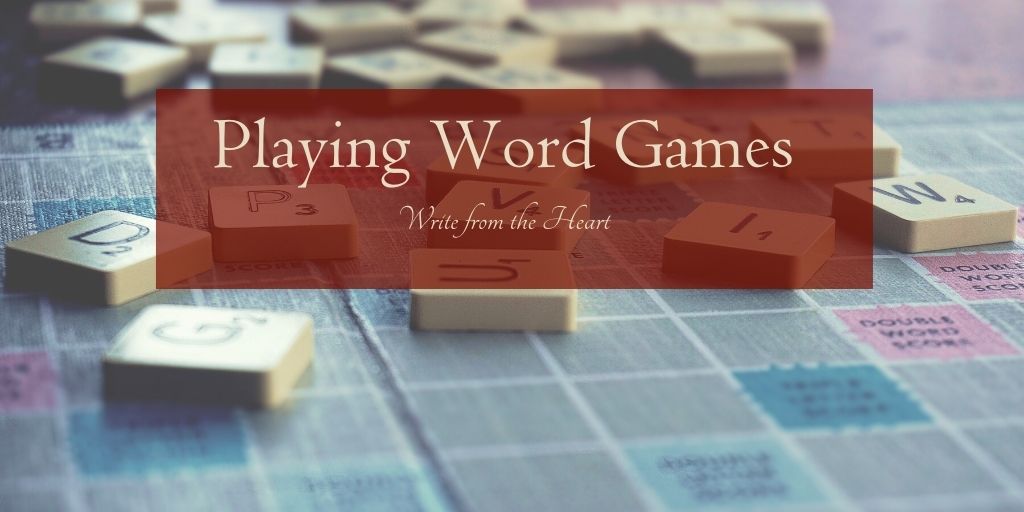
If you have been on social media over the last month or two, you have probably seen the posts with the yellow and green squares–evidence of the latest craze, Wordle. If you haven’t played yet, I would highly recommend it. It’s a simple game that you can only play once a day: try to guess a five letter word in six tries or less. Similar to the game Mastermind, correct letters in the right place turn green, and correct letters in the wrong spot turn yellow. Incorrect letters are grey. The creator made it for his partner during the pandemic shutdown and decided to post it online and it took off.
People love word games. I personally play Wordle, its offshoot Quordle (solve four words at once!), and the free New York Times mini-crossword and other free word games each day. It keeps me thinking and often helps me see words in a new way.
Playing word games can also help developing learners in a multitude of ways. Plus it’s a fun language arts activity!
Word Games Increase Vocabulary and Spelling
When we play games that require us to come up with words that fit certain rules, we naturally learn more to be able to become successful at the game. If you play Scrabble Slam, for example, the object is to replace letters in a four letter word from the cards in your hand. “Hand” can become “hang” for example by putting a g card on top of the d. For beginning readers, and all students really, this type of exercise naturally helps them see the possibilities of word choices and can improve spelling.
When paired with definitions or other category requirements, word games can help students learn the skill of choosing the right word for the right situation. Crossword puzzles only work if you put the correct word in a spot: perhaps “adage” fits, but the clues will only word out if you put in “idiom.” Both have similar, but not quite the same meaning. But both could be the answer to the clue “colloquialism” (and look! A third word!)
Word Games Increase Critical Thinking
I remember playing Scrabble with my grandmother when I was a teenager. We would always play with a dictionary next to us to look up challenges–and we often did. She never let me off easy, and she expected me to pay attention, too. Sometimes, I would simply try to make up a word and she would have me look it up; I loved when I lucked out and actually found it in the dictionary. I also learned to always ask when I didn’t know a word…because sometimes Grandma would cheat! She would act like she knew exactly what her made-up word meant, and would even use it in a sentence. At times, her status as grandma (and smart adult) let her get away with it. If I started to play my next word, her fake answer was locked in and there was nothing I could do. I sometimes tried to bluff her too, but I wasn’t nearly as good at it.
It was an important lesson to learn, though. It can be tempting to want to save face in situations when we don’t know what a word means or someone appears to know what they are talking about. So we nod along and act like we know what the other person is saying when we really don’t. We are afraid of looking silly in front of someone we deem smarter or more powerful than we are, but often asking for clarification can be the wisest thing to do.
This becomes even more important when we start talking about ideas and philosophies. Psychologists have discovered that people can be coerced into doing all kinds of things if they perceive that a person in authority is requesting it. Sometimes, simply having the requestor wear a white lab coat was enough to sway the listener! Learning to ask questions and think critically, even when the person seems to know what they are talking about or acts like they are in authority, can be one of the greatest gifts we can give our children. For me, that started with a tricksy Grandma.
Word Games Increase Writing Skills
When your vocabulary increases, the complexity of your writing naturally follows. If I learn the word “ominous” for example, I can take a sentence like “The storm was coming” and turn it into “The clouds hung ominously on the horizon.” That’s the beauty of the English language–the more words you know, the more precise and creative you can become with your descriptions.
As a teacher, I can usually pick out the students who are the readers and the word-game players, simply by their vocabulary. They tend to use why my middle school English teacher called fifty cent words. Some words, she said, are common…those are 25 cent words (great, good, happy, sad). We need these to move our writing along, but they are not generally good descriptors. Some words are too fancy and not really used in real life…those are dollar words (resplendent, salubrious, blithesome). These are words that make our writing sound pretentious and overly obtuse. But then there are words that are just right…these are the fifty cent words (magnificent, satisfactory, gleeful, morose). These words make our writing interesting. Use these words. Learn these words.
Want Some Game Ideas?
Looking for some great word games? Try these activities:
- Play online games (Wordle, Quordle, and the basic NYTimes games are free. NYT also has a subscription for additional games). Play on your phones and compare times and scores for a little friendly competition!
- Have family game night and play board games based on words (Boggle, Scattergories, and Scrabble are some of our favorites)
- Get magnetic poetry and write each other poems on the fridge!
- Buy a crossword book and do a puzzle together (My husband and I do NYT Wednesday crosswords over lunch. Monday is their easiest, and Sunday is their hardest).
Whatever you choose to do with your family, keep your brain active and expand your vocabulary–it will help in all your writing!

Interested in Building More Word Skills?
Perhaps your child is interested in playing with words through poetry. Or maybe they need a little bit of a grammar refresher to help them succeed.
Whatever your need, we have a workshop designed to help. Our workshops last four weeks and are self-paced through each week–all assignments are due Friday EST. These classes are wonderful supplements to encourage your child in the things they do well, or help them focus in on the things they need to work on. New workshops start the first Monday of every month.

